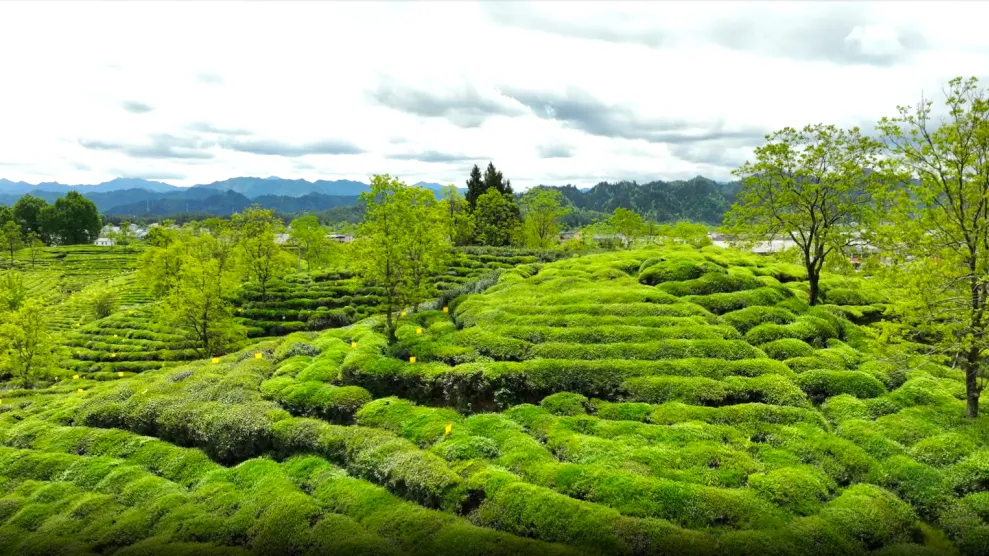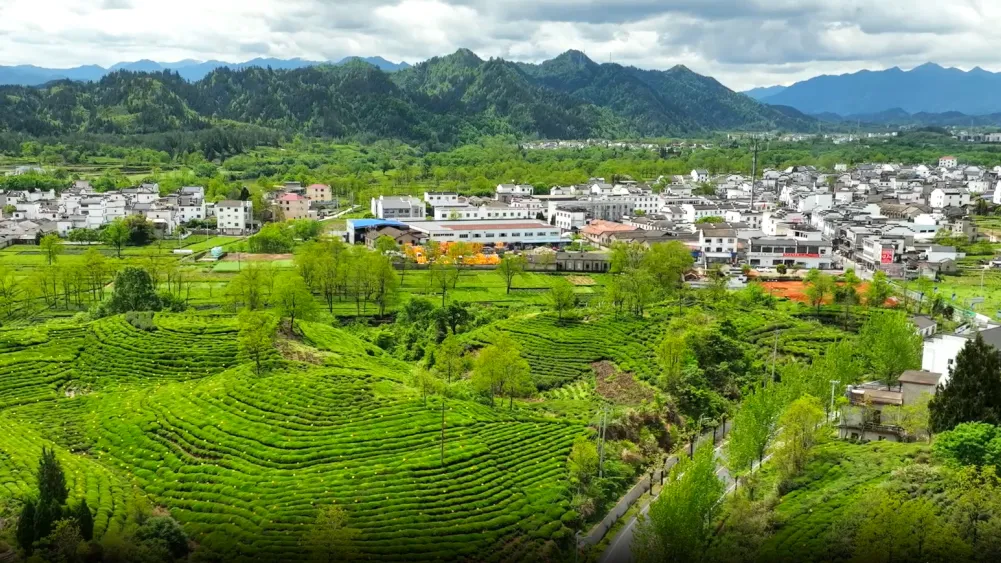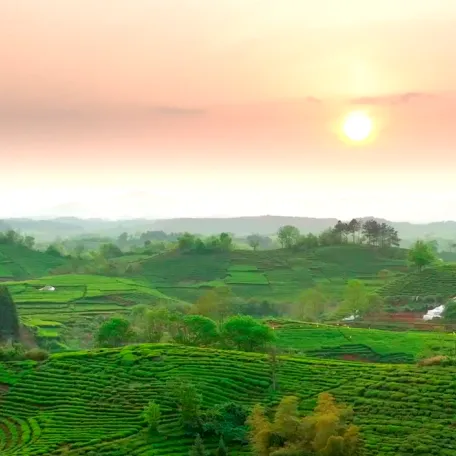
Yaoxi Tea Garden in Xiuning County, Huangshan
Yaoxi Village in Shangshan Township, Xiuning County
Yaoxi Village is located in the eastern part of Shangshan Township, Xiuning County, Anhui Province, along the Lueshui River, adjacent to the urban area, and only 5 kilometers from the center of Huangshan City. It serves as an important gateway to Shangshan Township, boasting a superior location with convenient transportation and developed communication networks. The original Tun (Wu) Line, Provincial Road 220, and National Highway Huangqu Expressway pass through the area.
The village covers an area of 954 mu of paddy fields and 800 mu of mountain fields, encompassing 6 villagers’ groups with a population of 1,000 people. Yaoxi Village features a unique and beautiful ecological environment, abundant natural resources, and distinctive characteristics. It is the largest tea-producing village in Shangshan Township, with 3,000 mu of tea gardens, 26 initial processing factories, one refining factory, and an annual production and processing capacity of 400,000 catties (units) of dried tea. The area is also known for its distinct local products such as chestnuts, ginger, plums, and peaches, and it boasts rich reserves of sand and gravel.
Historically, Yaoxi Village has a profound cultural heritage and was once known as the “Fairyland on Earth – Yaochi.” Under the influence of ancient Huizhou culture, it has produced many scholars and celebrities, including Dai Youqi, the provincial champion in the imperial examination in the 27th year of Kangxi’s reign (1688), and Wu Yongbiao, known for his integrity and dedication to public service.
During the Anti-Japanese War, Yaoxi Village played a crucial role as a rear base for education and healthcare. Tungxi Hospital and Shanghai Law School were temporarily relocated here.
Historical Evolution
Yaoxi Ancient Village was originally called Yaochi, known for its auspicious Feng Shui features such as Dragon’s Head and Tail, Double Flying Butterflies, and Red Boats Sailing to Sea. It has been a land of prosperity and vitality throughout history. The legend of “only Yaoxi, no Tungxi” reflects its historical prominence.
The main surnames in Yaoxi were Dai and Zhan. The Dai family of Yaoxi was related to the Dai family of Longfu, migrating to Yaoxi later than the Zhan family but achieving greater prominence. Two ancestral temples were built in Yaoxi, along with seven halls including Qianmen, Houmen, Zhongmen, Sicheng, Jiuting, and Glass Hall. The Dai family of Yaoxi later established a kinship relationship with the Zhan family.
After Dai Youqi achieved the highest academic honor, the Xiangyuan Hall was built in Yaoxi’s “Shangtong,” or later Longshan, with three halls in front and three in the back. The plaque “Zhuangyuan Yitang” was over ten feet high and six feet wide, adorned with dragons on both sides and characters as large as a bushel.
During the Anti-Japanese War, Yaoxi Village, due to its proximity to Tungxi, hosted numerous halls and became a rear base for education and healthcare. The Administrative Office of Southern Anhui Province’s Smoking Ban, Tungxi Hospital, and Shanghai Law School were successively relocated to Yaoxi. Across the river from Yaoxi Village, Yantang Village also hosted the Jiangsu Temporary High School.
Shangshan Town Yaoxi Tea Garden
Yaoxi Tea Garden(安徽黄山市休宁县瑶溪茶园)in Shangshan Town epitomizes the charm of China’s leading town for exporting Meicha (eyebrow tea), with lush greenery spreading across the mountains. If a slight mist rises, it feels like being in a fairyland, adding a mysterious atmosphere to Yaoxi Village.














